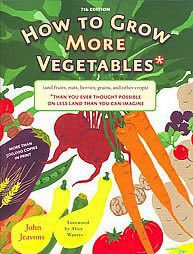KENYAN FARMERS CAN NOW BEAT THE BROKER!
Kenyan small scale farmers have a reason to smile. Using low-cost technology, DrumNet, a U.S.-based NGO, in collaboration with Pride Africa is helping shift power in agriculture away from urban “middlemen” who invest nothing in rural communities. The smallholder producers can now depend on DrumNet’s services to track market prices and make better-informed decisions about the sale of their produce. Additional services are planned to help improve farmers’ productivity and incomes.
Similar programs in neighbouring Uganda and Zambia have shown that if farmers receive fair prices for their produce, they will use the proceeds to improve their livelihoods and increase their incomes. This will eventually help make East African agriculture more efficient and productive, raising incomes and increasing opportunities for farmers and for their communities.
Small-scale farmers account for 70% of total Kenyan agricultural production and 50% of marketed output, yet these farmers are among the country’s poorest citizens. Many of Kenya’s smallholder farmers, typically working plots of an acre or less, slip into a cycle of deepening poverty. The cycle starts when farmers can’t afford the supplies they need—such as seeds, fertilizers and equipment—to grow optimal crops. To get what little they manage to grow to markets in towns and cities, they must rely on local brokers and resellers, who typically extract one-quarter of the wholesale value. With low prices for a meager crop, the farmers cannot afford to invest in supplies to increase the productivity of their next crop. This cycle is aggravated by population growth forcing the subdivision of farming land into smaller, less economically viable, plots. As a consequence of these and other factors, agriculture’s contribution to Kenya’s GDP has declined alarmingly in recent decades, dropping from 36.6% in 1964-1974 to 26.2% in 1990-95 (according to the National Development Plan 1997-2001). DrumNet aims to reverse declining productivity by eliminating intermediaries and giving farmers access to efficient business processes and economies of scale. DrumNet acts as a broker, charging a small fee to provide credit to farmers, and to link them to businesses that sell agricultural supplies or transport produce to market, to wholesale exporters, and to agricultural extension/training organizations. DrumNet kiosks are managed by an ‘info-broker’, usually from the community, who collects and shares information, helps form farmer groups, and arranges buy and sell deals.
If farmers embrace this technology then a smile to the bank is all we will see!
For more detail check http://www.idrc.ca/en/ev-50207-201-1-DO_TOPIC.html or www.drumnet.org

